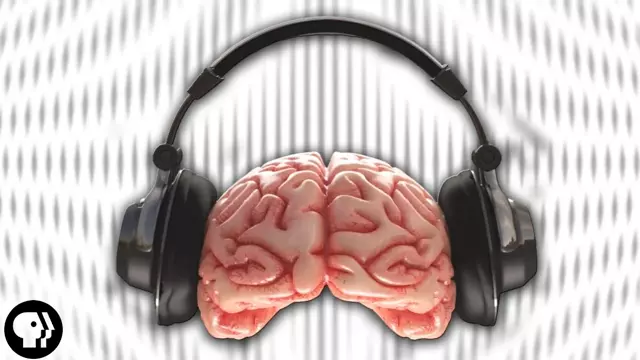2015-06-23
[unlisted] 2.19M views, 22.2K likes, 2.26K dislikes audio only
4KDo you trust your ears?
Over on Reactions: Why Do We Love Music? https://youtu.be/XA7NrrIZtT4
↓ MORE LINKS BELOW ↓
SUBSCRIBE to BrainCraft! Click here: http://ow.ly/rt5IE
BrainCraft is written and hosted by Vanessa Hill (https://twitter.com/nessyhill) for PBS Digital Studios. Talking psychology, neuroscience & why we act the way we do.
Sound design and cameo: Joel Werner (http://joelwerner.com)
Keep in touch!
Snapchat: nessyhill
Twitter https://twitter.com/nessyhill
Instagram https://instagram.com/nessyhill
Tumblr http://braincraft.tumblr.com
Facebook https://www.facebook.com/Braincraft
More BrainCraft!
Are You Paying Attention? /youtube/video/t4svQ-CGpII
Can You Follow This Beat? /youtube/video/s6hUOaMzpLU
ILLUSIONS (Try them again!)
Speech to Song Illusion http://philomel.com/asa156th/mp3/Sound_Demo_1.mp3
Tritone paradox http://philomel.com/mp3/musical_illusions/Tritone_paradox.mp3
Phantom words http://philomel.com/mp3/phantom_words/ex/phantom_words_ex1.mp3
Phoneme restoration effect https://www.youtube.com/watch?v=2ilZnM6ZbSM&ab_channel=jruleflash
REFERENCES (Yay!)
Amazingly comprehensive website of illusions:
http://dianadeutsch.ucsd.edu/psychology/pages.php?i=206
Neuroscience of illusions:
Riecke, L., Esposito, F., Bonte, M., & Formisano, E. (2009). Hearing illusory sounds in noise: the timing of sensory-perceptual transformations in auditory cortex. Neuron, 64(4), 550-561. http://phys.org/news/2009-11-auditory-illusion-brains-gaps.html
Speech to Song Illusion:
Tierney, A., Dick, F., Deutsch, D., & Sereno, M. (2013). Speech versus song: multiple pitch-sensitive areas revealed by a naturally occurring musical illusion.Cerebral Cortex, 23(2), 249-254. http://dianadeutsch.ucsd.edu/pdf/Cerebral_Cortex_2012.pdf
Tritone Paradox
Deutsch, D. (1991). The tritone paradox: An influence of language on music perception. Music Perception, 335-347. http://dianadeutsch.ucsd.edu/pdf/MP-1991_8_335-347.pdf
Deutsch, D., North, T., & Ray, L. (1990). The tritone paradox: Correlate with the listener's vocal range for speech. Music Perception, 371-384. http://dianadeutsch.ucsd.edu/pdf/MP-1990_7_371-384.pdf
Phantom Word Illusion
http://dianadeutsch.ucsd.edu/psychology/pages.php?i=211
The Phoneme Restoration Effect a.k.a. Temporal Induction
Repp, B. H. (1992). Perceptual restoration of a "missing" speech sound: Auditory induction or illusion?. Perception & psychophysics, 51(1), 14-32. http://www.haskins.yale.edu/sr/sr107/sr107_11.pdf
http://spandh.dcs.shef.ac.uk/ed_arena/mad/mad/ti/ti.htm
Super interesting (I ran out of time to include this):
Deutsch, D., Henthorn, T., Marvin, E., & Xu, H. (2006). Absolute pitch among American and Chinese conservatory students: Prevalence differences, and evidence for a speech-related critical perioda). The Journal of the Acoustical Society of America, 119(2), 719-722. http://dianadeutsch.ucsd.edu/pdf/JASA-2006_119_719-722.pdf
/youtube/video/kbzL9PxtFf0?t=19
/youtube/video/kbzL9PxtFf0?t=105
/youtube/video/kbzL9PxtFf0?t=209
/youtube/video/kbzL9PxtFf0?t=300
/youtube/video/LDbBATpFmkg
/youtube/channel/UCt_t6FwNsqr3WWoL6dFqG9w

